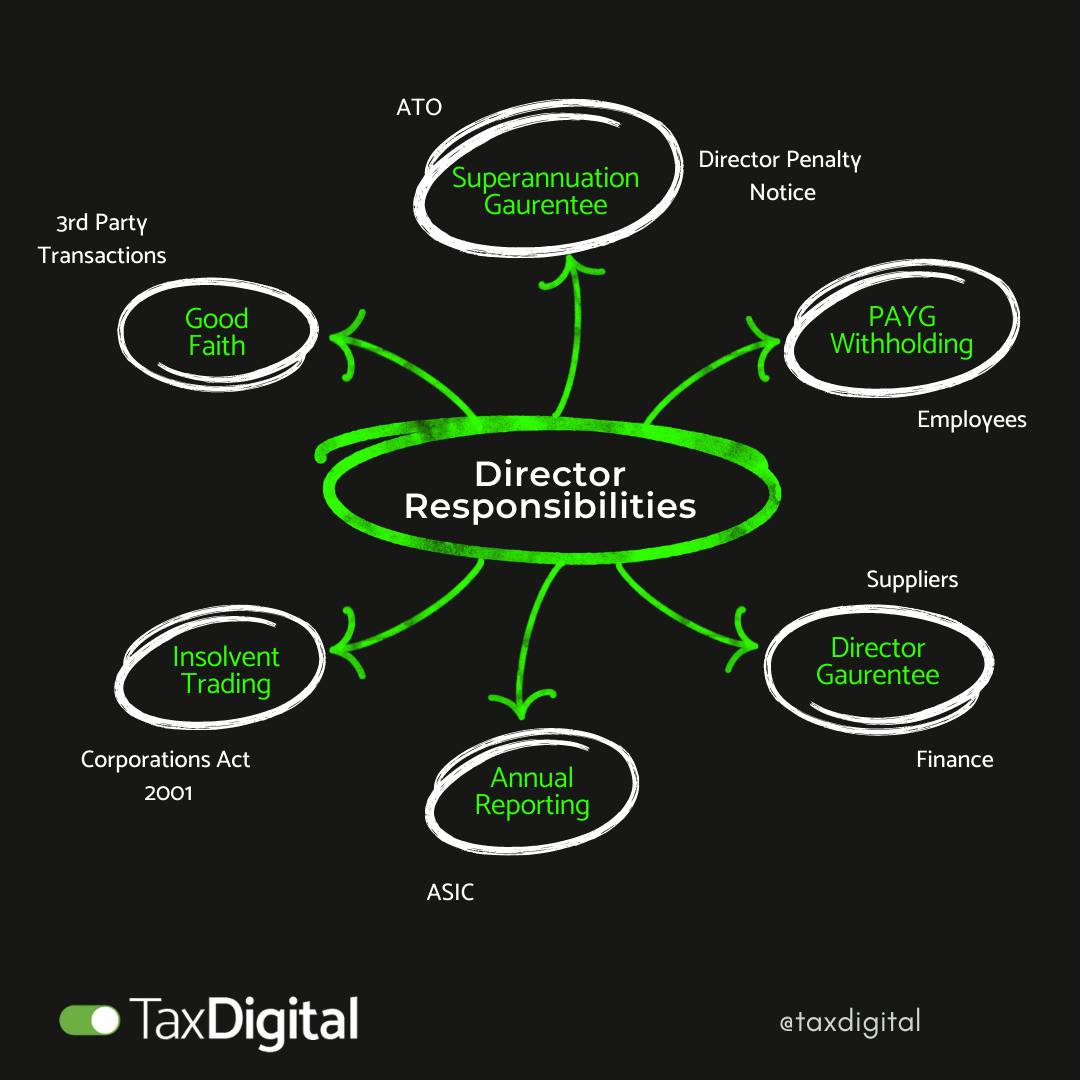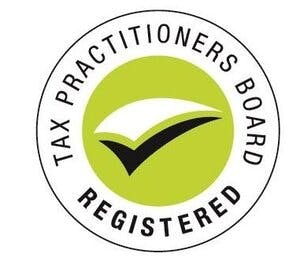Responsibilities of a Director

By Travis Bacon
December 02, 2021

In general, being appointed a company director is often a significant milestone in someone's life. It usually means that small business owners have taken the initial steps to run their own business. Don't be fooled, though; being a company director comes with an array of additional responsibilities. For example, a director has the obligation under the Corporations Act to ensure that the company complies with all appropriate legislation and operates at the highest possible standards. Should a director not perform their duties, they can face penalties, including disqualification from acting as a company director, significant fines and even jail time. In addition, the business could also suffer reputable and financial damages.
Why choose a company in the first place?
A company is essentially a separate legal entity from those who created it (i.e. directors and shareholders). This has many benefits for small businesses, including keeping taxes and legal liability separate from the business owners. As a result, a private company provides the least amount of risk to the owners; however, as a director of a company, there are still some key responsibilities and risks to take into account.
Who can be a director?
For a person to be a director of a company in Australia, they must meet specific requirements, including:
- Be a natural person (i.e. not an entity or a robot)
- Be at least 18 years of age
- Provide signed consent to taking on the role and responsibilities of a director
- If the company is a 'private company, it must have one director who resides in Australia
A person cannot be a director if they:
- are an undischarged bankrupt
- have entered into a personal insolvency agreement and failed to comply with the terms
- have been banned by ASIC or a court from being a director
- have been convicted of dishonesty-related offences, such as fraud.
What are the legal responsibilities of directors?
A director is responsible for the oversight and affairs of the company. They must comply with their obligations under the Corporations Act 2001. At all times, the director must be up-to-date with the company affairs, including the financial position, staff activities, 3rd party dealings, etc. As a director of a company, you cannot use your position or information obtained for personal gain or advantage. Essentially a director must:
- Preform their roles with due care, diligence and skill
- Prevent insolvent trading
- Act in good faith and the best interest of the company
- Not use their position or knowledge for personal gain or advantage
- Maintain proper records and prepare financial reports
- Keep ASIC informed of changes in your Company Details
Directors liability for a company debt
There are some circumstances when a director is personally responsible for its company debts. For example, if the company is found to be trading insolvent, then a director may need to use their personal assets and finance to pay the company debts.
A director also has liability under Statutory Obligations (written laws detailing a directors legal obligations and consequences for non-compliance). The most common statutory obligations are for "Pay As You Go Withholding" (PAYGW) and Superannuation Guarantee Charge (SGC) amounts the company has not paid. In addition, a director may receive a directors penalty notice from the ATO.
It is imperative that a director pays their PAYG and Super on time to avoid director penalties.
A director may also be liable if they have signed a director's guarantee. This is often required when a company secures credit from a bank or supplier. A director should always consider the ramifications of signing a directors guarantee and ensure the company is in an appropriate financial position to take on the debts.
How can TaxDigital help?
At TaxDigital, we can assist directors in understanding their liabilities and assessing the risk of individual transactions. We provide the financial reporting assurance a director needs to make sound business decisions. TaxDigital acts as an ASIC agent and deals directly with ASIC managing your annual requirements, so you don't have to.
If you would like some personalised advice or assistance, feel free to reach out to us on 0407 438 849 or contact@taxdigital.com.au.
This is general advice only and does not take into account your financial circumstances, needs and objectives. Before making any decision based on this document, you should assess your own circumstances or seek personalised tax advice from us at TaxDigital. Information is current at the date of issue and may change.
Recent publications
Get the latest industry and tax information from our small business blog.






